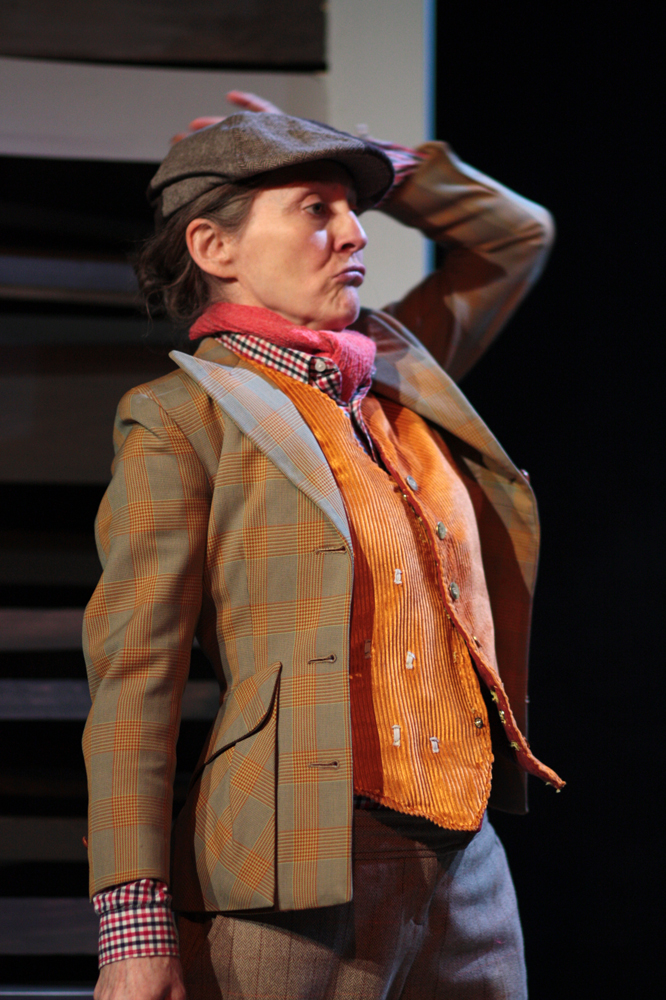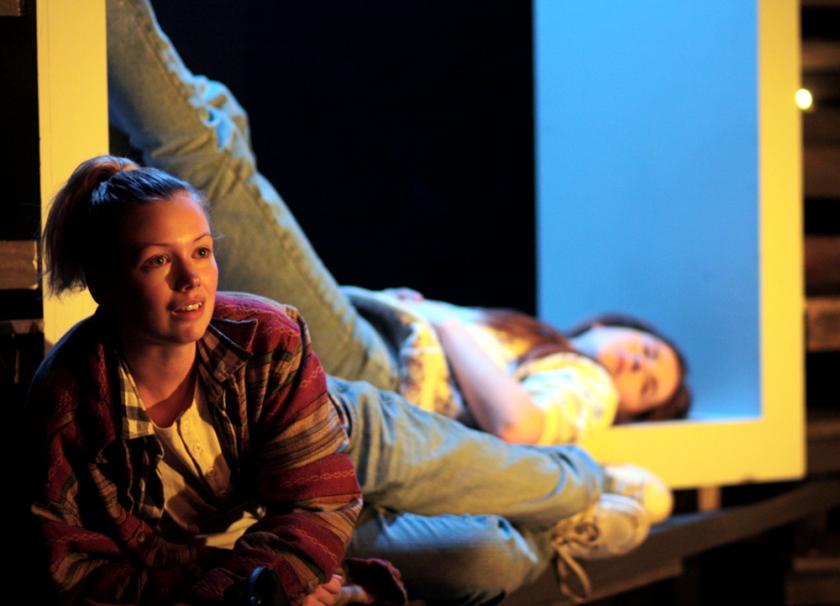In a draining first work, Ailís Ní Ríain infuses a coming-of-age saga with Irish folklore. The outline sounds gripping enough: burdened with caring for their ill parents, two teenage friends run away to the Irish coast. But then come cultural threads that weave uncomfortably into the canvas, plus surreal overtones that suggest the story is not so straightforward. On their journey, the two girls meet a loopy farmer, a loopy lorry driver and a loopy butcher, who tell them a fairytale about a lazy girl who would prefer not to spend all day behind a spinning wheel.
The story is "The Lazy Beauty and Her Aunts", which appears in a collection edited by WB Yeats: a detail loosely connecting a few lines from his poem "The Stolen Child" that crop up throughout the play: "Come away, O human child!/ To the waters and the wild/ With a faery, hand in hand,/ For the world's more full of weeping than you can understand." Indeed, it is not just the weeping of the world that some might fail to understand, but this overload of references, mix of tones and ideas – especially when the Yeats link is not made explicitly in the play.
 In its most compelling guise, Desolate Heaven explores the relationship between the two runaways. As troubled, lonely teenagers, they develop a growing affection for each other that quickly turns sour - so sour that one of them does not survive. Carla Langley, as the headstrong Orlaith, and Evelyn Lockley, as the reserved Sive, make promising professional debuts in these roles. They display convincing chemistry and tackle difficult scenes - particularly those in which they play both their own character and their invalid parent.
In its most compelling guise, Desolate Heaven explores the relationship between the two runaways. As troubled, lonely teenagers, they develop a growing affection for each other that quickly turns sour - so sour that one of them does not survive. Carla Langley, as the headstrong Orlaith, and Evelyn Lockley, as the reserved Sive, make promising professional debuts in these roles. They display convincing chemistry and tackle difficult scenes - particularly those in which they play both their own character and their invalid parent.
But what is the meaning of their bizarre encounters along the way? Are they invented? They are at least entertaining. Brid Brennan (pictured right) plays the three eccentrics with relish and a welcome lightness. Not many works demand the sort of range that comes playing an aristocratic farmer obsessed with trimming haystacks; a lorry driver obsessed with cleanliness and his load of lemons; and a butcher obsessed with corned beef.
Mysterious too is the relevance of the fairytale told by these characters. In the story, a lazy girl marries the prince by impressing the queen with garments that fairies have spun for her. She has passed these off as her own work. But the runaways have worked hard looking after their parents. What can the story teach them? That they, unlike the princess, will not live happily ever after? How cheery.
Ailís Ní Ríain, who is more established as a classical composer, has a keen ear for dialogue. But the music from the downstairs pub risks intruding into quieter moments and disturbing the emotional power. Paul Robinson's direction is dynamic, although at times there is too much movement. The play opens his first season as sole artistic director of the theatre. This is an ambitious effort, but one that doesn't quite repay the effort.















Add comment